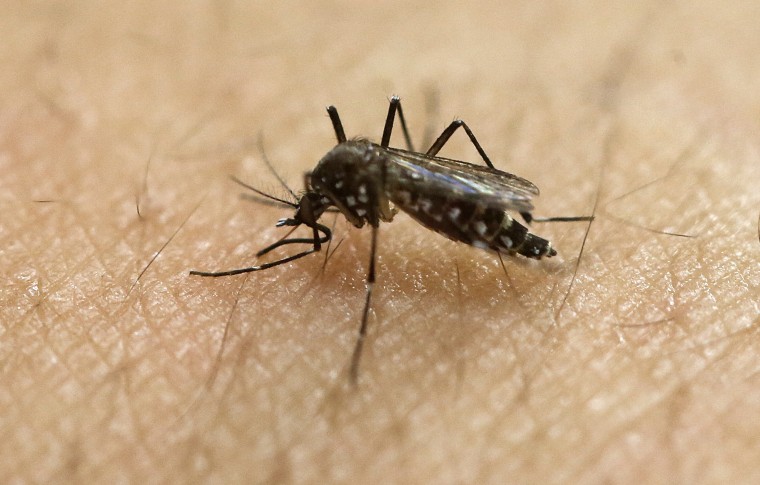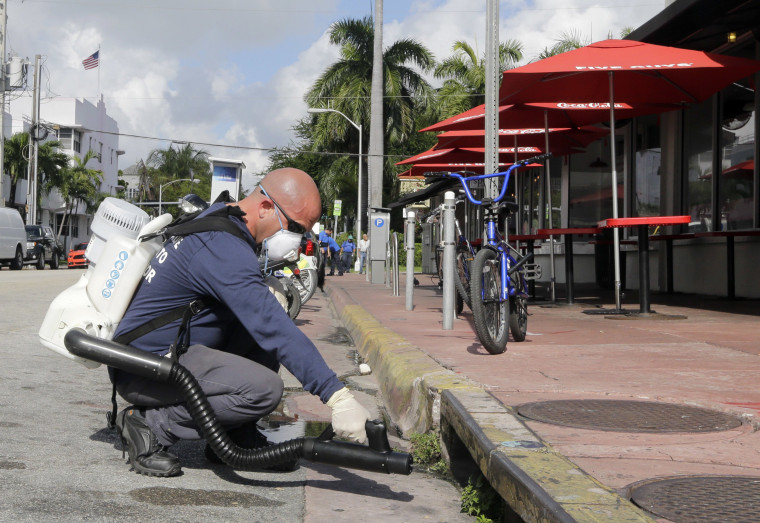Florida health officials who have been testing thousands of residents for Zika virus said Wednesday they found another infection: dengue virus.
The health department said it confirmed a case of locally acquired dengue virus, the second this year in the state and the first in Miami.
And a traveler from Connecticut caught the virus in Florida, Connecticut state health officials said.

Dengue is a close relative of Zika and it is spread by the same mosquitoes. Health experts say anywhere you find dengue, you are likely to find Zika.
The viruses cause similar symptoms, although people who get repeated dengue infections can develop a deadly hemorrhagic fever. Zika's main harm is to unborn babies, who suffer birth defects if the mother's infected while pregnant.
They are so closely related that tests often mix up the two viruses, as well as a third relative: chikungunya. The Centers for Disease Control and Prevention has designed two tests that can diagnose Zika separately: one that finds Zika alone, and another that can differentiate Zika, dengue and chikungunya.
The dengue infection almost certainly turned up because officials are looking for it, says Dr. Peter Hotez, dean of tropical medicine at the Baylor College of Medicine.
"There's likely dengue and Zika in multiple areas of Florida and the Gulf Coast, but we're not looking," Hotez said.
"There's likely dengue and Zika in multiple areas of Florida and the Gulf Coast, but we're not looking."
The state health department has tested more than 8,300 people as it tries to stay on top of Zika. So far, 120 home-grown cases have been found, presumably transmitted by the Aedes aegypti mosquitos that thrive in Florida’s warm, wet climate.
The state has also been testing mosquitoes for Zika, although it is very difficult to find in the insects, which don’t travel far.
Related: Meet the Zika Mosquito Hunters
Miami-Dade County settled a squabble with the state over the tests Wednesday by releasing the five Miami Beach addresses where Zika-infected mosquitoes have been trapped.
“The Department of Health instructed the County, on multiple occasions, to withhold information related to the exact location of the Zika-positive mosquito traps,” Miami-Dade County Mayor Carlos Giménez said in a statement.
"We will disclose the locations of any such traps that test positive for Zika to both the property owner and to anyone else who inquires."
“Now that the County has been granted permission — via an email from the Florida Surgeon General — to release this information, we are releasing the addresses. This will be our protocol going forward: We will disclose the locations of any such traps that test positive for Zika to both the property owner and to anyone else who inquires,” he added.
Related: Full NBC News Coverage of Zika
No Zika-infected mosquito has been found since September 9. But more cases have been found daily, although people may not necessarily have been infected in recent days. Tests can detect past infections.
Florida’s health department has reported 125 locally transmitted cases of Zika virus infection, and another 700 cases carried by travelers or sexually infected by travelers. Among the total, 92 are pregnant women. It’s not clear how many pregnant women may have been infected locally.
And 13 visitors to Florida are among the locally transmitted cases, including the Connecticut patient.

